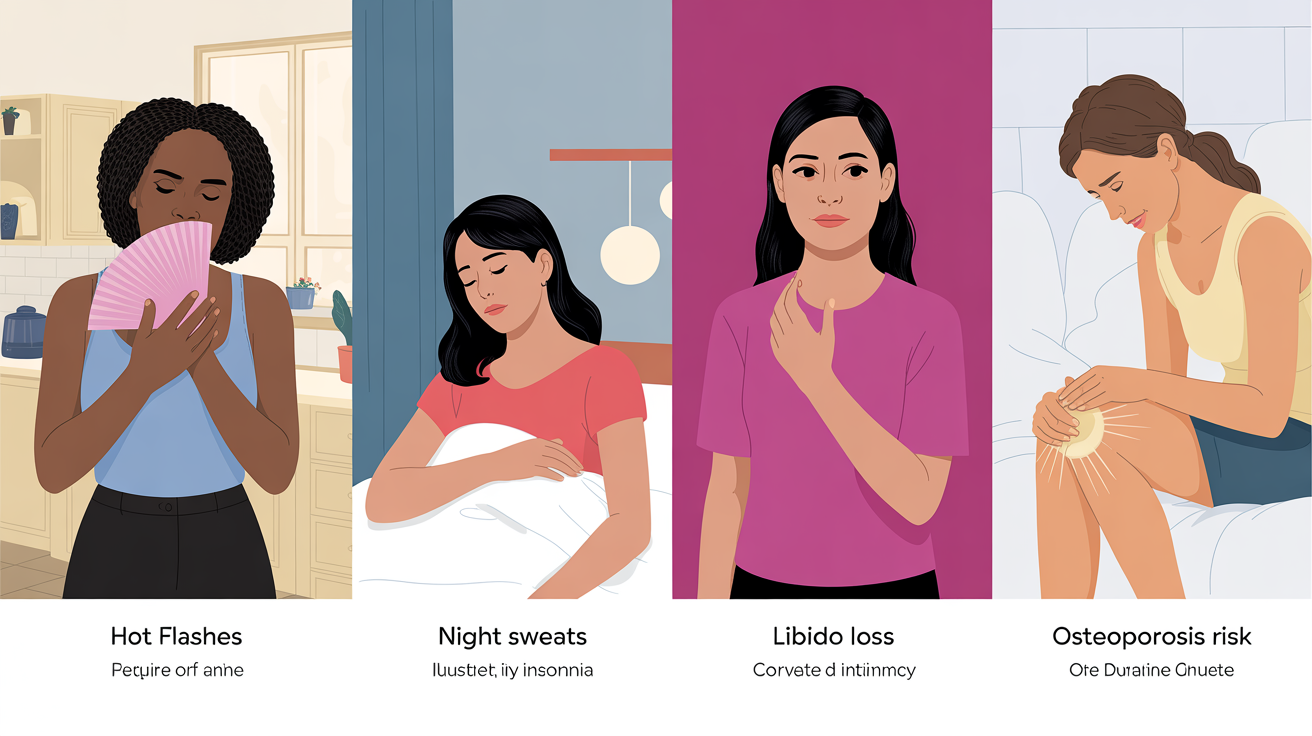Why Menopause Can’t Wait
85% of women experience symptoms. But most are still suffering in silence.According to the National Institutes of Health, the vast majority of women — over 85% — report experiencing symptoms of menopause. These include hot flashes, night sweats, vaginal dryness, libido loss, sleep disorders, and emotional changes that can disrupt daily life and long-term health.
Despite these widespread symptoms, medical research has long ignored menopause as a serious health issue. As a result, millions of women are navigating these changes without access to the latest science, informed care, or treatment options like estradiol, progesterone, or hormone replacement therapy (HRT).
While the population of aging women is growing, scientific research continues to disproportionately focus on men and younger bodies—even in conditions that primarily affect women.By sidelining menopause in medical research, we’ve created a healthcare gap that affects half the global population — one that undermines not only health outcomes, but workplace performance, mental wellness, and quality of life.
The Cost of Ignoring Menopause
The economic impact of untreated or poorly managed menopause is staggering. In the U.S. alone, menopause symptoms contribute to an estimated $150 billion in lost productivity annually. Women reduce hours, miss work, or leave the workforce entirely due to untreated symptoms like sleep disruption, brain fog, and chronic fatigue.
This isn’t just a personal problem. It’s a public health issue — and an economic one.
Why Now? Because We Can Do Better
We’re living in a time of breakthrough technology and rising awareness around health equity. There’s never been a better moment to prioritize menopause research and care.
With investment and attention, we can:
Advance research and access to hormone therapy — including personalized HRT, estradiol, progesterone, and vaginal estrogen
Fund critical studies on menopause-related risks — like osteoporosis, sleep disruption, and long-term quality of life
Normalize the conversation — through public education and training providers to deliver menopause-informed, compassionate care
Millions of women deserve better. So do their daughters, partners, doctors, and communities.

Your Voice Matters
Whether you’re a woman navigating menopause now, or a researcher, healthcare professional, or advocate who sees the system failing — your voice can help shift this story.


